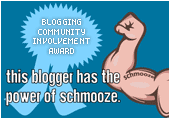Every time Sally saw Ed on a street corner, she wanted to ask him to come home. Something about his scraggly gray beard, skinny frame, and washed-out blue eyes made her feel both protective and guilty. Protective because he was still her husband, and not much more than a little boy lost. Guilty because she was the reason he was on the street in the first place.
To his credit, he never reminded her of that, even though she could see he recognized her. Maybe he was afraid she would assail him with the memories that flooded her every time she thought about taking him back. Maybe he was right.
The first thing she always remembered was the way his moods followed the seasons. What he called his "fertile times" came in spring and fall. His "fallow times" happened during summer and winter. But his moods weren't all that yawed like a
yo-yo; their whole life together had, too. His bipolar disorder had been
ubiquitous, suffused everything until she could no longer console herself with the idea that it was the disease, not the man, that was the problem.
The second thing she recalled were the manias. How he'd seduced her with the most
quixotic mind-vacations she'd never thought possible: his plans to become the next Jackson Pollock, for one thing. His wildly romantic gestures, for another, especially the time he bought tickets to
Belize for a flight departing the very next day. That was the Ed she'd met and dated.
On the other hand, there was the Ed she married—foolishly, just three months after meeting him—he was that persuasive. This disaffected Ed had appeared shortly after their wedding. His
perfunctory response to her, when she found a
brown recluse spider in the closet, had so enraged her that after she killed the spider—and its unhatched progeny—she found pictures of infected spider bites online and showed them to him, one by one, desperate for any response that showed he cared about what she felt. He gave none, just kept staring forward as if catatonic.
She'd tried to get treatment for him. He'd gone with her willingly. It was just that all the treatments involved drugs, which Ed wouldn't even consider. "They'll turn me into a zombie. They'll kill my creativity," he said, so mournfully that Sally didn't have the heart to insist that the bipolar disorder was what ultimately killed his creativity.
For all intents and purposes, then, Ed remained indistinct from his disease. That realization made Sally decide to pursue a campaign of
quid pro quo. Selfish and immature, sure, but she couldn't just divorce him. She figured there had to be a way to snap him out of it.
She waited for autumn's manic episode. Then, the first thing she did was
abrogate most of her housewifely responsibilities. She stopped doing the housework; she laundered only her own clothes, used paper plates while Ed continued to use china. He didn't notice.
She escalated her fear of bugs into an apparent case of
melissophobia. Not much of a stretch. Still he didn't notice.
Then she stopped reacting to Ed. She didn't gush over his paintings or his plans as she once had. That was hardest of all, because he did notice. He'd gaze at her with disappointment, sadness even, and it was all she could do not to scream at him
See how it feels. Shortly after that was when he left.
Sometimes she'd see sidewalk art that she thought was Ed's, but she never saw who created it. Just that it appeared most on her regular routes. At first she thought it was a punishment for the way she'd treated him in those final months: not to be able to tell him one last time how much she loved his work. Then she thought maybe it was a test, like in a fairy tale. If she caught him working, it would mean he was ready for her to take back.
Most recently, though, she thought it was a message.
Come and join me. We couldn't work in your world, but maybe we can in mine.
On their second anniversary, Sally donned a long-sleeved t-shirt, light pants, and walking shoes. She tied a fleece sweater around her waist, left her key in an envelope for the landlord, then went downstairs into the sunshine. Ed's next fallow period was right around the corner. He'd need her.



